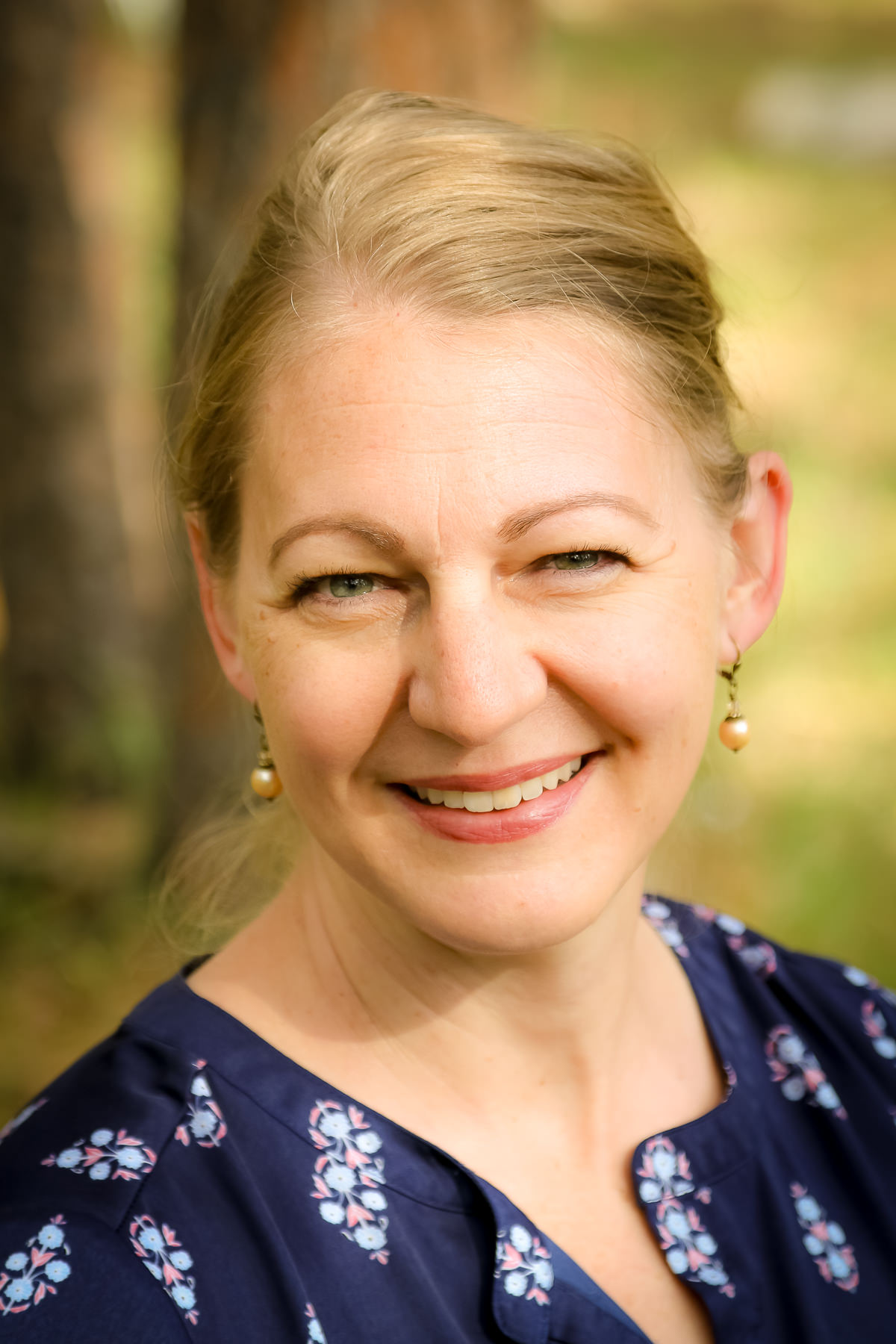Cultivating Identity is dedicated to exploring the elements that contribute to each person’s sense of identity, including story, song, art, community, Creation, Scripture and more. How do these experiences influence us and help shape who we are becoming? Courage is required to examine our own hearts, so in this column we will embark on this journey together and encourage one another along the way.
![]()
A few weeks ago, I went to a retreat with my daughter, Maddie. One of the activities was to decorate a journal; they gave us each a composition book and scrapbooking supplies, and we spent the evening cutting and gluing. Maddie has invested considerably in developing her artistic talent, and she drew an elk to decorate her journal, impressing everyone at our table. I have not invested as much in developing my artistic skills and did not even attempt to draw anything. But even in such a fun, no-pressure activity, I was prickled with a current of unpleasant self-awareness. I know no one was judging my journal, but I was afraid of making it look stupid. I did not take any risks, but stuck to decorations I knew would look nice.
I have always enjoyed creative activities. At five years old I was ready to stop taking naps, but I shared a bunk bed with my little sister, who was only two and still needed naps. She refused to lay down if I didn’t have to, so my mom filled a pizza box with art supplies. I would climb up to my bed and color and cut contentedly while my sister slept. My favorite thing to draw was a family of heart-shaped people under a rainbow. However, when I got to kindergarten, I began to compare my drawings with some of the other girls, and I realized mine were not as good. As I grew up, drawing and other creative activities became something I only did in private. I sang and danced in my room with the door closed. I drew comic strips but never showed them to anyone. I wrote, but never let anyone read my work.
![]()
We are always judging. But are we judging with a knife, or with grace? My tendency has always been to judge with a knife. That is, until I entered the classroom of grace through the door of motherhood. Since then, I have learned to extend grace to others as well, but I still struggle to have grace for myself.
Do you have a hierarchy of grace? It might look something like this:
Maximum grace: Grandkids. Enough said.
Lots of grace: Kids, pets, friends.
Some grace: Spouse, siblings, your pastor.
Little grace: Annoying neighbors, people who cut you off in traffic . . .
No grace: Self.
How does this compare with God’s hierarchy of grace? Let’s see . . .
Maximum grace: You. Me. Each human being ever created.
![]()
“Identity” is not the same idea as “identify.” Our identity is what is true about us, regardless of whether or not we realize it, accept it, or “identify” accordingly. My identity includes the creative parts of my soul, whether or not I present myself as a “creative person.” Did you know that creativity is not a genetic trait? It is a skill, like reading or riding a bicycle. Creative thinking engages different aspects of the brain, and the more we exercise those neurological connections, the stronger they become. Maddie has reinforced her creative connections through years of practice, and she rightfully considers herself an artist. But am I less of an artist? No, and neither are you. Life itself is an art, and we each must think creatively every day as we live out the stories of our lives.
Why, then, do I resist this? Why do I judge myself more harshly than anyone else? If you and I each paint a picture, or teach a class, or throw a party, I will think yours is wonderful, but I will see all the flaws in my own. This is when Grace knocks on the door.
“Who’s there?”
“It’s me, Grace. I’d like to show you something.”
“No thanks, I like being self-focused and critical.”
And this is when Grace breaks down the door. That’s not how we think of grace, is it? We tend to think of grace as meek and mild, peaceful and tender. But the Grace of God is mighty and overwhelming, and God knows it is too good to be kept from us. He will give us Grace.
BAM! Down comes the door locked tight against Grace, and there He stands in the doorway. And with Him is a multitude: all the people who love me. They see what I was hiding behind that locked door, and they still love me. Some of them even say, “Why were you hiding this? It’s beautiful.”
“There is no happiness like that of being loved by your fellow creatures, and feeling that your presence is an addition to their comfort.” [1]
When I have gathered the courage to take my eyes off of myself and look at the people around me, I have often realized I have something to offer them. The thing I was fretting over isn’t for me or about me. The instrument of grace may be a letter, or a cup of tea and a listening ear; it may be sharing the gospel or cleaning a bathroom. It may be encouragement, or it may be confrontation. Having laid down the knife of judgment, even for a moment, I am free to look at another with the love of Christ and say, “I see you.”
![]()
[1] Brontë, Charlotte, Jane Eyre (New York, Random House, Inc., 1950), 250.
The featured image, “Between Heaven & Earth Spring Skies in Colorado,” is courtesy of Lancia E. Smith and is used with her glad permission for Cultivating.
Athena Williams is honored to serve as the Director of Online Publication for Cultivating Magazine. She is currently working towards a master’s degree in Clinical Mental Health Counseling through Liberty University online. Athena considers writing a privilege and a wonder, and hopes her work will encourage each reader to lean in to the shaping work of God. athenawrites.com
Leave a Reply
A Field Guide to Cultivating ~ Essentials to Cultivating a Whole Life, Rooted in Christ, and Flourishing in Fellowship
Enjoy our gift to you as our Welcome to Cultivating! Discover the purpose of The Cultivating Project, and how you might find a "What, you too?" experience here with this fellowship of makers!


Add a comment
0 Comments